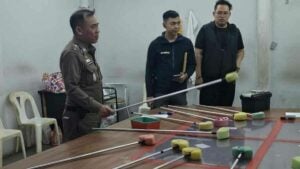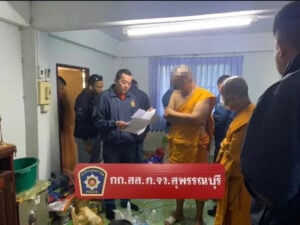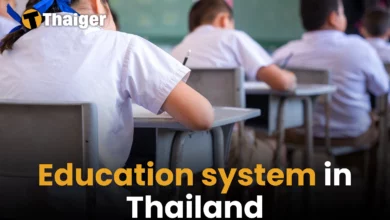How to manage time as a college student in Thailand

Time management – it’s a phrase that’s thrown around often, especially in the bustling life of a college student. But what does it truly mean and how can it be effectively implemented in your daily routine? This article aims to delve into the intricacies of time management, specifically tailored for you, the hardworking college student in Thailand.
Through the lens of ‘temporal structuring’, we’ll explore how your everyday actions contribute to the rhythm and pace of your life. This concept, a novel way to comprehend and study time, bridges the gap between subjective and objective perspectives on time management.
Are you ready to transform your hectic schedule into a symphony of well-orchestrated tasks? Let’s dive in and learn how to become a maestro of your own time.
Understanding time management challenges for college students
In this section, we’ll take a closer look at the intricacies of time management from the perspective of a college student in Thailand. Within this context, we’ll explore distinct cultural and academic expectations, as well as unique challenges inherent in Thai educational institutions.
Cultural and academic expectations
In Thailand, cultural norms profoundly influence academic expectations. For a college student, striking a balance between respecting traditions and accomplishing academic obligations often presents a unique challenge. Core to Thai culture is the concept of being ‘krengjai’, meshing politeness, deference, and consideration. Students learn to prioritise this cultural norm, which might lead to academic concessions, possibly affecting time management strategies. Hence, the implication of this cultural backdrop could result in students delaying or even foregoing certain academic tasks to uphold tradition.
Unique challenges in Thai educational institutions
Thai educational institutions, with their unique structure and systems, create additional challenges. Too often, these obstacles are overlooked in time management strategies shared online or in self-help books. A typical Thai university student needs to tackle large class sizes, lecture-heavy teaching styles, and complex administrative processes. Moreover, they’re navigating an education system where rote learning often takes precedence over critical thinking, leading to lengthy studying hours. Such a demanding academic environment necessitates precise planning and execution of time management strategies.
Effective time management strategies

Enhancing productivity as a college or university student in Thailand requires a mastery of several crucial time management strategies. Let’s delve into the specifics.
Prioritising academic and personal tasks
For optimal time management, prioritising tasks is essential. Class assignments, study sessions, and important deadlines must top your list. However, personal activities and hobbies also hold value. Divide your tasks into categories based on their importance. Use an approach like the Eisenhower Box technique. It’s a time-tested tool that divides tasks into four categories:
-
Urgent and important: Complete these tasks immediately.
-
Important, but not urgent: Schedule these tasks for later.
-
Urgent, but not important: Delegate these tasks if possible.
-
Neither urgent nor important: Consider removing these from your routine.
Recognising the difference between ‘urgent’ and ‘important’ aids in refining your priorities, leading to improved academic efficiency.
Creating a realistic study schedule
Developing a study schedule that’s both feasible and adaptable is a significant step towards effective time management. To create a realistic study schedule, follow these steps:
-
Comb through your syllabus: Go through each of your course outlines. Understand deadlines, exam dates, and other essential academic timings.
-
Utilise tools: Calendar applications or old-school planners can be powerful visual aids in managing your time. They can help you plan your weeks, get a bird’s-eye view of your semester’s commitments, and help you adjust accordingly.
-
Plan breaks: Remember, breaks are just as important as study sessions. Incorporate short breaks for relaxation to keep your brain functioning at its optimum.
-
Revise: Your schedule isn’t set in stone. If something isn’t working, make adjustments. Your schedule should serve you, not control you.
Keep in mind that even the best schedules fail if they’re not backed by discipline and commitment. Stay consistent, and your time management skills will aid tremendously in navigating your life as a college or university student in Thailand.
Tips to avoid procrastination and distraction

Identifying common time-wasters
As a college student in Thailand, it’s crucial to stay mindful of what eats into your time. Some common distractions include excessive use of social media, unexpected visitors, noise in study environments, and engaging in less important tasks. By monitoring your daily routine, you’ll spot these time-wasters and understand your productivity patterns.
Techniques to stay focused
Success as a university student in Thailand depends on your ability to maintain focus. Here are some effective techniques:
-
Set specific goals:
Specify what you want to achieve within each study session. This strategy provides a clear path, lessening the risk of getting sidetracked. -
Adopt the ‘pomodoro technique’:
For every 25 minutes of concentrated study, take a five-minute break. This technique keeps your mind fresh, making it better equipped to absorb new information. -
Deactivate digital distractions:
Switch off notifications or use apps that block distracting websites during your study sessions. -
Designate a specific study area:
Having a specific, well-organised, and quiet space dedicated to studying can enhance concentration.
Implement these strategies, and you’ll find yourself managing your time better, less prone to distraction, and more productive in your academic pursuits in Thailand.
Incorporating physical and mental health
Let’s delve into the importance of integrating physical and mental health as part of your time management strategy as a university student in Thailand.
Balancing study sessions with exercise
An aspect that necessitates meticulous attention is the amalgamation of physical activity into an individual’s study protocol. The importance of physical exertion is undeniable as it bestows numerous benefits to cognitive and physical well-being, thus fostering superior efficiency within time management. Physical activity aids in reducing stress levels, boosting energy, and improving mood, subsequently cultivating a more favourable mental state for academic endeavours.
Routine physical exertion, even something as minimal as a 30-minute walk, can catalyse cerebral activity and augment alertness, concentration, and motivation. Recognising and leveraging this influence can transform you into a more proficient learner, by guaranteeing your mind is at its zenith during your study intervals. It is advised to incorporate some modality of physical exercise into your daily routine, whether that be in the early dawn before lectures, during intermissions, or after your study engagements.
Importance of regular breaks and downtime

On a related note, don’t overlook the need for regular breaks and downtime in your time management strategy. Just as your mind benefits from being active, it also requires rest. Without adequate breaks, cognitive fatigue can occur, impacting your ability to focus, degrading the efficiency of your study sessions, and ultimately, reducing productivity.
Plan regular breaks during your study periods, either using the Pomodoro technique where you work for a set amount of time (for example, 25 minutes) followed by a short break (5 minutes), or an approach that best suits your study rhythm. These breaks provide opportunities for your brain to process and consolidate information you’re learning.
Utilising local resources and support systems
Leveraging campus facilities and clubs
As a university student in Thailand, it’s vital to capitalise on local resources available on campus. Take advantage of study facilities such as libraries, computer labs, and quiet study areas. These provide distraction-free zones, conducive to enhancing your focus and productivity.
For instance, working in libraries not only affords access to reference materials but also offers a peaceful learning environment. In computer labs, nobody distracts you from finishing that research paper or project work.
Joining campus clubs presents another viable avenue for managing time efficiently. How so? By joining clubs and societies, you engage in structured activities, which helps streamline your daily schedule. Say, you’re in the drama club, rehearsals might be every Tuesday and Thursday afternoons. That way, you’ve got significant chunks of your week already earmarked for specific tasks.
Seeking guidance from academic advisors
University student life in Thailand or anywhere else can get overwhelming. That’s when academic advisors become a lifeline. They are professional sources of help that guide you in goal setting, academic planning, and resource utilisation.
Academic advisors can assist in developing a balanced course schedule, considering your personal time constraints. They’ll understand your strengths and weaknesses and guide you in selecting courses where you’ll more likely excel. This strategy perfects the art of workload balance, therefore, making the most of your time.
Rural education in Thailand faces numerous challenges, including limited access to educational resources, inadequate infrastructure, and a shortage of trained teachers, which collectively hinder the quality of education and opportunities for students in these areas.

































